


Books in series

Amazing Stories, Vol. 1, No. 1, April 1926
1926

Amazing Stories, Vol. 1, No. 2, May 1926
2014

Amazing Stories, Vol. 1, No. 6, September 1926
1956

Amazing Stories, Vol. 4, No. 1, April 1929
2008
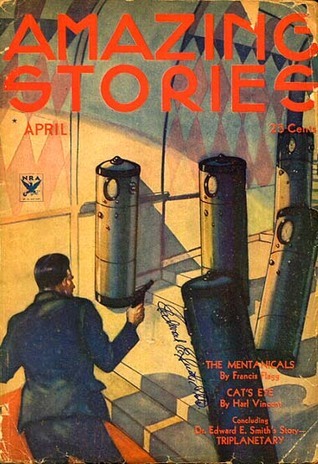
Amazing Stories, Vol. 8, No. 12, April 1934
1934
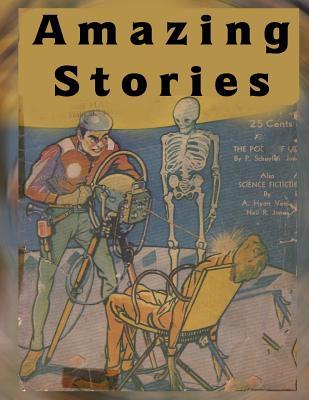
Amazing Stories, Vol. 9, No. 6, October 1934
1934

Amazing Stories, Vol. 15, No. 8, August 1941
2013
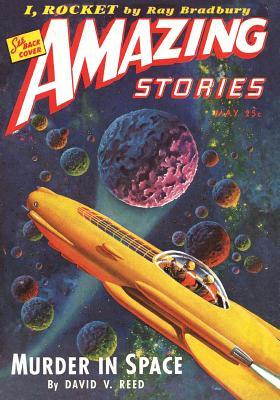
Amazing Stories, May 1944
1944
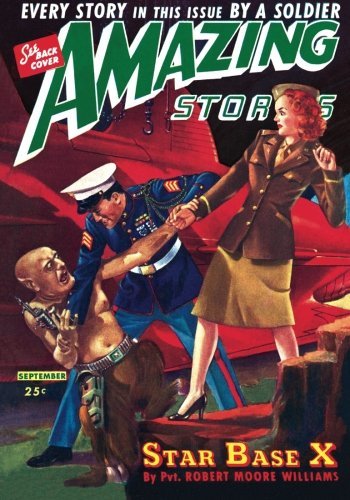
Amazing Stories September 1944 - Special Armed Forces Edition
Every Story by an SF Author Fighting in WWII: Replica Edition
2015
Amazing Stories, October 1965
1965
amazing science fiction stories August 1974
2025

Amazing Science Fiction Stories, September 1976
1976

Amazing Stories, November 1978
1978

Amazing Science Fiction Stories, Vol. 56, No. 5, March 1983
1983
Amazing Stories Magazine
1991

Amazing Stories Magazine #577, December 1992
1992
Amazing Stories Magazine, Vol 67, No 11
1993
Amazing Stories Magazine, No. 587
1993
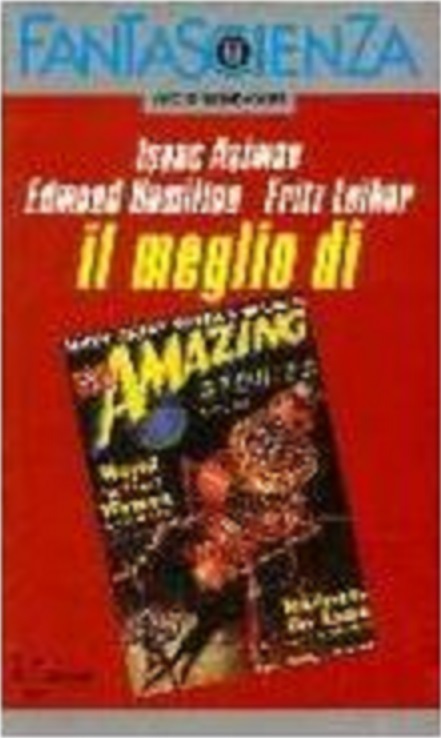
Il meglio di "Amazing Stories"
1989
Authors


Kim Rudolph Mohan (born May 4, 1949 in Chicago, Illinois) is an American author and editor. Mohan was born in Chicago, Illinois, and moved to Williams Bay, Wisconsin when he was five. He became an avid science-fiction and fantasy reader and occasional wargamer, and graduated third in his high school class. He attended Beloit College, switching majors between philosophy, mathematics, and other subjects. "I decided that what I really wanted to do was write, so I sort of fell into a job working for the Lake Geneva Regional News as a reporter, and dropped out of college. That lasted for a few months, then I joined the staff of the Beloit Daily News, where I stayed for nine years." During that time, Mohan worked as everything from a sports writer, an editorial writer, the state editor, and the wire service editor. After nine years, he had grown tired of the newspaper business, and became a freelance writer for various newspapers.

Fred Saberhagen was an American science fiction and fantasy author most famous for his ''Beserker'' and Dracula stories. Saberhagen also wrote a series of a series of post-apocalyptic mytho-magical novels beginning with his popular ''Empire of the East'' and continuing through a long series of ''Swords'' and ''Lost Swords'' novels. Saberhagen died of cancer, in Albuquerque, New Mexico Saberhagen was born in and grew up in the area of Chicago, Illinois. Saberhagen served in the [[U.S. Air Force]] during the Korean War while he was in his early twenties. Back in civilian life, Saberhagen worked as an It was while he was working for Motorola (after his military service) that Saberhagen started writing fiction seriously at the age of about 30. "Fortress Ship", his first "Berserker" short shory, was published in 1963. Then, in 1964, Saberhagen saw the publication of his first novel, ''The Golden People''. From 1967 to 1973, he worked as an editor for the Chemistry articles in the ''Encyclopædia Britannica'' as well as writing its article on science fiction. He then quit and took up writing full-time. In 1975, he moved to Albuquerque, New Mexico. He married fellow writer Joan Spicci in 1968. They had two sons and a daughter.

James Morgan Walsh also wrote as H. Haverstock Hill, Stephen Maddock, George M. White and Jack Carew. Walsh was born in Geelong and educated in Melbourne and is best known as an extremely prolific writer of crime mysteries, mostly set in England. His first novel, Tap-Tap Island (1921), was first serialised in the Melbourne Leader, his second, The Lost Valley(1921), was a prize-winner in the C.J. De Garis competition; his third was Overdue (1925). After experience in auctioneering and book-selling, Walsh visited England in 1925 to negotiate with publishers, returned to Victoria but left for permanent residence in England in 1929. Pseudonyms he used include 'John Carew', 'George M. White' and 'H. Haverstock Hill'; he also wrote in collaboration with E.J. Blythe and Audry Baldwin. His first three novels, which are adventure romances, are set in New Guinea and western Victoria and he also wrote two Australian detective stories, The Man behind the Curtain (1927) and The League of Missing Men (1927). The five adventure stories that he wrote under the pseudonym 'H. Haverstock Hill', Anne of Flying Gap(1926), Spoil of the Desert (1927), The Golden Isle (1928), Golden Harvest (1929) and The Secret of the Crater (1930), range between New Guinea, the Northern Territory, Gippsland, WA and the South Seas.

Novels of French writer Jules Gabriel Verne, considered the founder of modern science fiction, include Journey to the Center of the Earth (1864) and Around the World in Eighty Days (1873). This author who pioneered the genre. People best know him for Twenty Thousand Leagues Under the Sea (1870). Verne wrote about space, air, and underwater travel before people invented navigable aircraft and practical submarines and devised any means of spacecraft. He ranks behind Dame Agatha Mary Clarissa Christie as the second most translated author of all time. People made his prominent films. People often refer to Verne alongside Herbert George Wells as the "father of science fiction." https://en.wikipedia.org/wiki/Jules\_V...


George Raymond Richard "R.R." Martin, born on September 20, 1948, in Bayonne, New Jersey, is a distinguished fantasy and science fiction writer. Son to Raymond Collins Martin, a longshoreman, and Margaret Brady Martin, he grew up with two sisters, Darleen Martin Lapinski and Janet Martin Patten. Martin's passion for writing emerged early, selling monster stories to neighborhood kids, which later evolved into a keen interest in comic books during his high school years, where he also started writing fiction for comic fanzines. His first professional story, The Hero, was sold in 1970 at age 21 and published in Galaxy's February 1971 issue. After earning a B.S. and then a M.S. in Journalism from Northwestern University, Martin served as a conscientious objector with VISTA, tied to the Cook County Legal Assistance Foundation from 1972-1974, alongside directing chess tournaments and teaching journalism. His marriage to Gale Burnick in 1975 ended in divorce by 1979 without children. Martin transitioned to full-time writing in 1979, after a stint as writer-in-residence at Clarke College. In Hollywood, Martin contributed to Twilight Zone and Beauty and the Beast on CBS, later producing his own pilot, Doorways. Residing in Santa Fe, New Mexico, he's been actively involved with the Science Fiction & Fantasy Writers of America and the Writers' Guild of America, West.

Herbert George Wells was born to a working class family in Kent, England. Young Wells received a spotty education, interrupted by several illnesses and family difficulties, and became a draper's apprentice as a teenager. The headmaster of Midhurst Grammar School, where he had spent a year, arranged for him to return as an "usher," or student teacher. Wells earned a government scholarship in 1884, to study biology under Thomas Henry Huxley at the Normal School of Science. Wells earned his bachelor of science and doctor of science degrees at the University of London. After marrying his cousin, Isabel, Wells began to supplement his teaching salary with short stories and freelance articles, then books, including The Time Machine (1895), The Island of Dr. Moreau (1896), The Invisible Man (1897), and The War of the Worlds (1898). Wells created a mild scandal when he divorced his cousin to marry one of his best students, Amy Catherine Robbins. Although his second marriage was lasting and produced two sons, Wells was an unabashed advocate of free (as opposed to "indiscriminate") love. He continued to openly have extra-marital liaisons, most famously with Margaret Sanger, and a ten-year relationship with the author Rebecca West, who had one of his two out-of-wedlock children. A one-time member of the Fabian Society, Wells sought active change. His 100 books included many novels, as well as nonfiction, such as A Modern Utopia (1905), The Outline of History (1920), A Short History of the World (1922), The Shape of Things to Come (1933), and The Work, Wealth and Happiness of Mankind (1932). One of his booklets was Crux Ansata, An Indictment of the Roman Catholic Church. Although Wells toyed briefly with the idea of a "divine will" in his book, God the Invisible King (1917), it was a temporary aberration. Wells used his international fame to promote his favorite causes, including the prevention of war, and was received by government officials around the world. He is best-remembered as an early writer of science fiction and futurism. He was also an outspoken socialist. Wells and Jules Verne are each sometimes referred to as "The Fathers of Science Fiction". D. 1946. More: http://philosopedia.org/index.php/H.\_... http://www.online-literature.com/well... http://www.hgwellsusa.50megs.com/ http://www.britannica.com/EBchecked/t... http://en.wikipedia.org/wiki/H.\_G.\_Wells